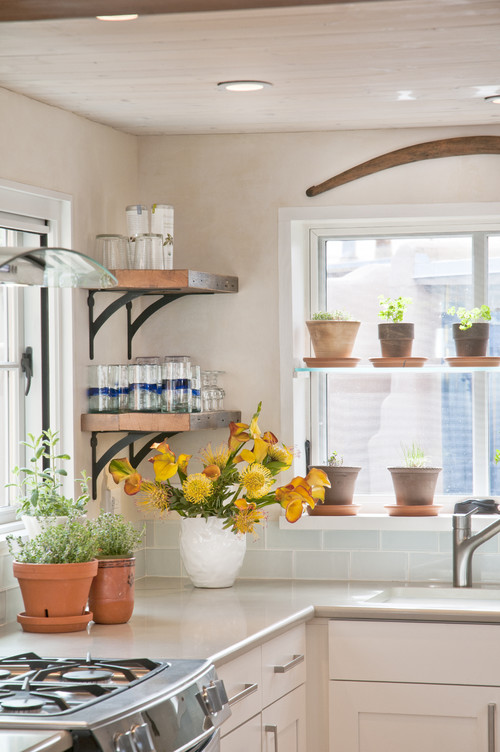6 Gardening Misconceptions To Nip in the Bud
Below, are some of the most common gardening misconceptions that may be holding you back from realizing your true calling.
1. I don’t have enough space for a garden
The size of your yard should never discourage you from gardening. You can still get your hands dirty, no matter the space.
“You don’t even need a garden plot at all. If you live in an apartment or condo and have just a tiny bit of space, you can grow many of your favorite herbs, veggies, and flowers in containers,” says Angelo Randaci, a master gardener and horticulture expert at Earth’s Ally.
Amy Enfield, horticulturist for Bonnie Plants Gardening, says gardening is what you choose to make of it.
“Whether it’s a large vegetable garden in the backyard, a plot in a community garden, a well-manicured landscape, a raised bed, containers on the patio, a plant on the windowsill, or a hydroponic unit on the kitchen counter, there are plants that grow well in each situation,” she says.
2. Gardening always starts with seeds
When you think of starting a garden, you might picture yourself digging into soil, dropping in some seeds, and watering. But do you really need seeds to start your garden?
“No! Start with plants, not seeds. You will save time and avoid any mistakes that can happen during the seed-starting process,” says Randaci.
You can buy “plant starts,” or baby plants, at your local nursery or garden center, and skip the seeds altogether.
“The benefit of young, or starter, plants is they reach maturity quicker, so you get to enjoy the fruits of your labor sooner than if you started from seed,” says Enfield.
3. I’m too social for solo gardening
Gardeners are some of the chattiest folks you will ever meet—just go to your local nursery and ask a question and you’ll see. And while gardeners may enjoy occasionally being one with nature, gardening doesn’t have to be a solo activity.
“Another great way to turn the activity social and get help as a beginner is by joining your local community garden,” says Randaci. “It’s a beneficial way to garden if you don’t have space in your yard and want to share ideas and fresh food while making new friends.”
Enfield says even if you end up doing the gardening by yourself, “there are plenty of communities on social media you can join to brag about your gardening successes or ask for help when you have a problem.”
4. Bugs in my garden are bad news
Freaked out by creepy-crawlies? Learn to take a different view—some can be a gardener’s best friend.
“Bees alone help pollinate over one-third of the world’s food crops and ensure food security, biodiversity, and vibrant ecosystems for plants,” says Randaci.
Some bugs act as pollinators, predators, and parasites in your garden. For example, predators like the praying mantis, ladybug, and spider eat bugs that might destroy your plants.
5. You’ll never be a green thumb
You fell off your bike a few times before learning how to ride it. By that same token, turning that brown thumb green takes time. But it will happen.
“Being a green thumb and growing plants doesn’t come naturally for everyone, but all hope is not lost. You just need to follow a few simple steps to be successful,” says Randaci. “Starting off with the right tools—a shovel, rake, trowel, hoe, pruners, and gloves—and investing in high-quality soil amendments will help tremendously.”
Enfield says the biggest key to success is choosing the right plants for your gardening habits.
“If you tend to forget to water your plants, try growing drought-tolerant plants. If you tend to overlove your plants, look for plants that prefer constantly moist soil and make sure you’re planting in really well-draining soil,” she says.
6. You’ll have too many vegetables and they’ll go to waste
Now that you’ve grown all these wonderful vegetables in your garden—and can’t possibly eat all of them—what are you going to do with your harvest?
“Many people don’t realize that food that you grow in your own yard can be donated directly to your local food pantries to help those in need in your neighborhood,” says Mike Sutterer, CEO of Bonnie Plants.
Home gardeners grow enough surplus food to feed 28 million hungry people every year, according to AmpleHarvest.org founder and Executive Director Gary Oppenheimer. The group has identified nearly 8,700 member food pantries nationwide and can connect gardeners to the nearest participating food pantry with instructions on how, where, and when to donate extra produce.

Comments
Post a Comment